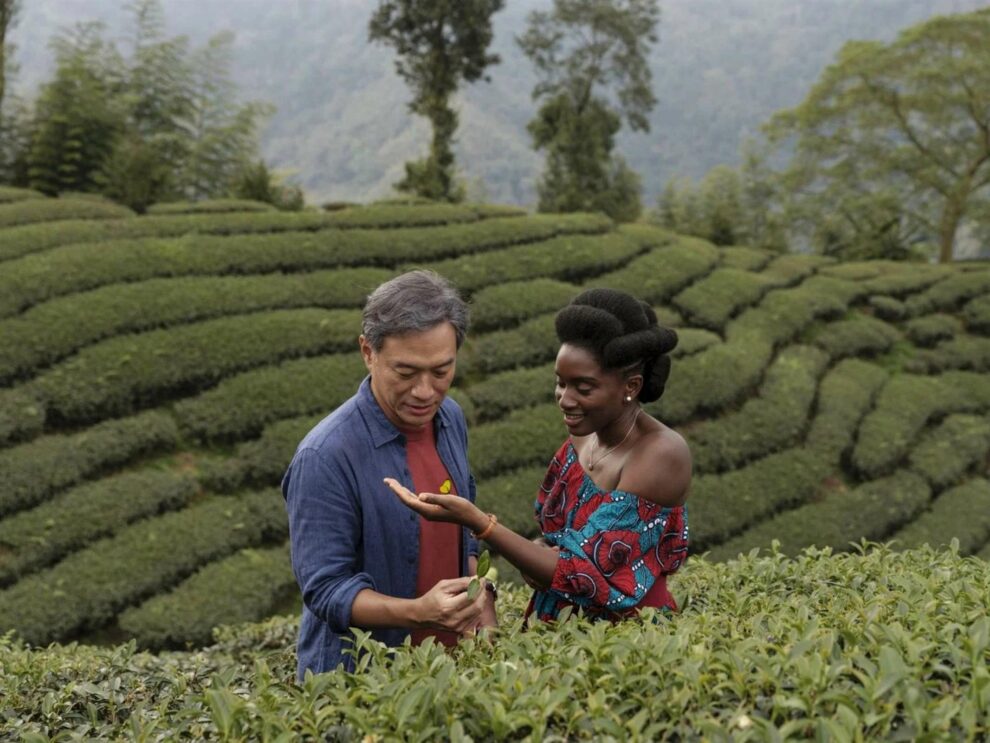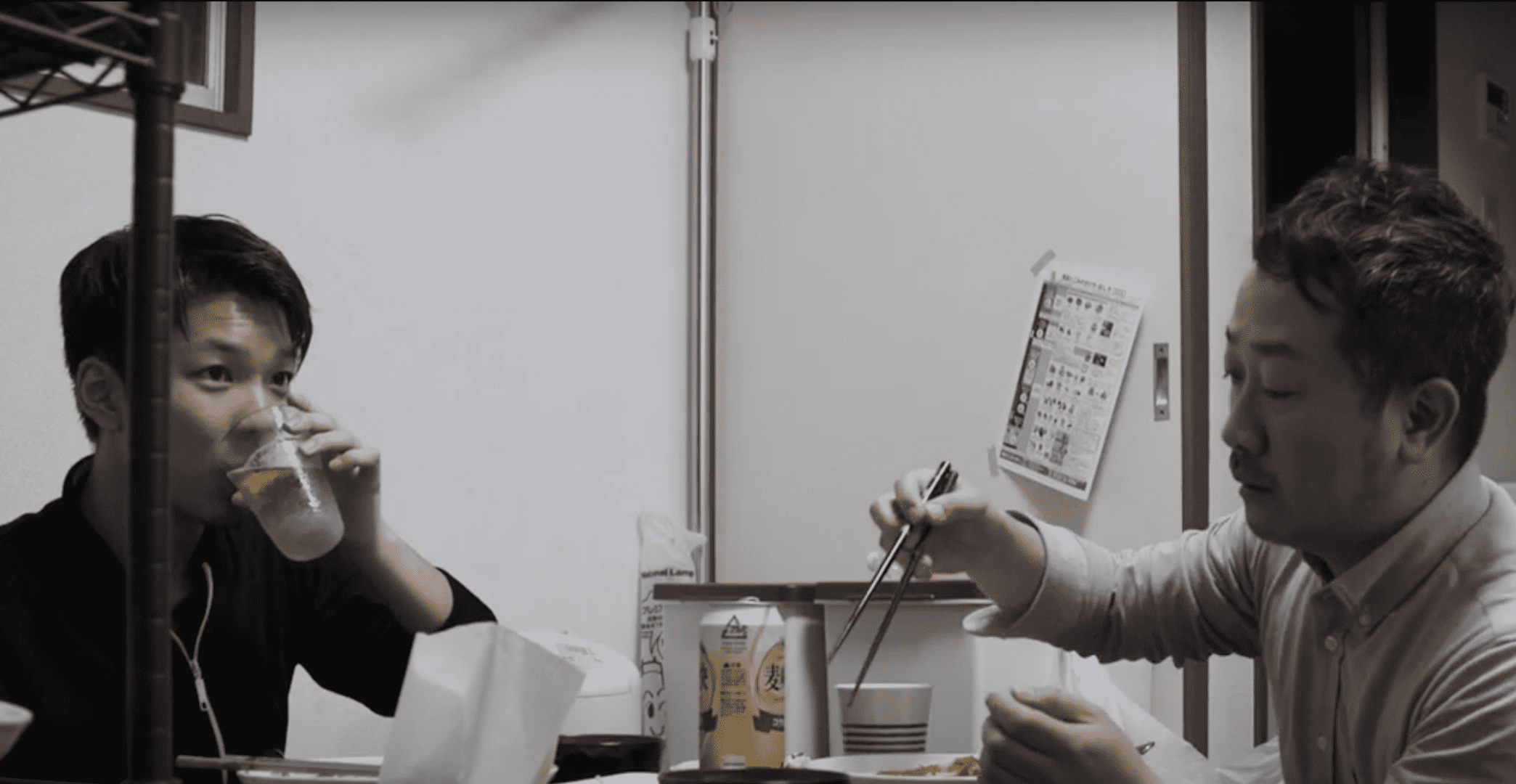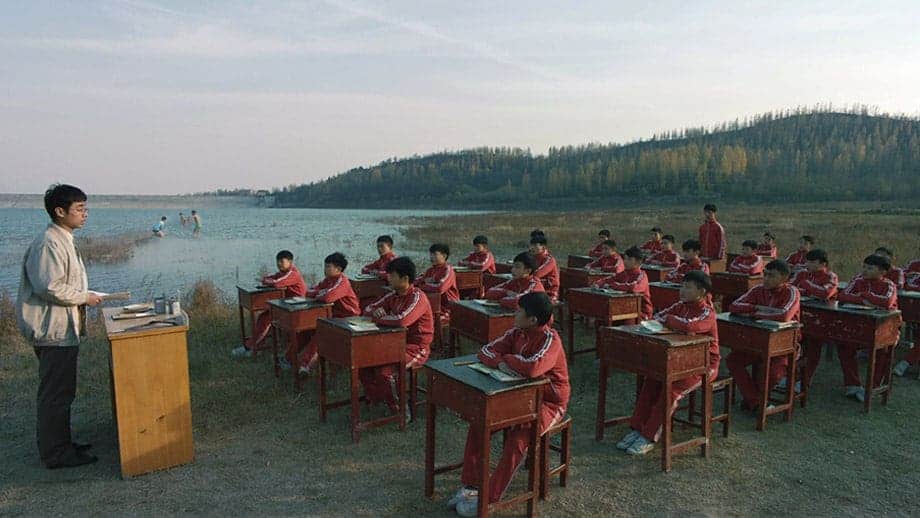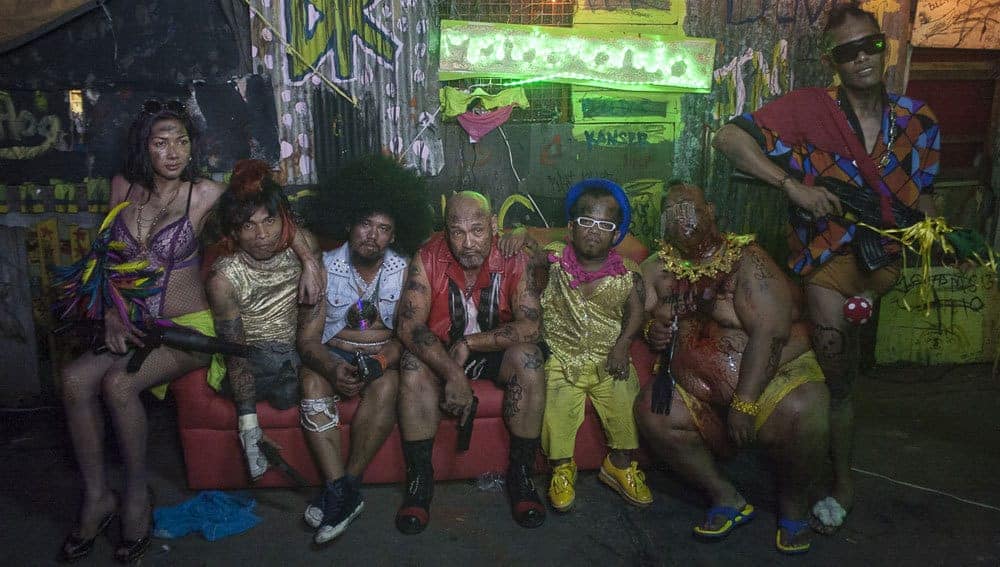The Mauritanian master Aberrahmane Sissako reached glory with his previous feature, the foreign-language Oscar-nominated “Timbuktu” (2014). It was a harrowing, beautiful and potent film that hit the soft spot in combining the no-nonsense panoramic overview of the Islamist occupation of the titular city and the humaneness of the resistance to it. Ten years later, Sissako is, once again re-united with his co-screenwriter Kessen Tall, back on the festival circuit with his attempt at the globe-trotting cinema called “Black Tea”. It premiered at the competition of Berlinale and continued its tour at the Belgrade International Film Festival – FEST.
Black Tea screened at Berlin International Film Festival

Sissako opens his film with a sequence set, but not actually elaborated in any way, at a mass wedding ceremony in Abijan, the capital of Ivory Coast. Like other brides, Aya (Nina Melo) is excited, but when her time comes to say the magic words, she makes a monologue, explaining that her husband needs a better wife than she could ever be, and storms out to the crowded, dusty alleys. After a slow cross-fade, set against an Afro-world-music cover of Nina Simone's standard “Feeling Good”, we see her once again, this time dressed in red and with a different hairdo, walking the streets of the Chinese port city of Guangzhou. Judging by her appearance, she might either be a beautician or a person that uses their services almost on daily basis.
As it turns out, apart from the regular, but not that frequent visits to the African hair salon in the part of the town called Chocolate City, she is not associated with the beauty industry by any means. Instead, she works at a tea shop as a saleswoman and an apprentice tea-sommelier, learning the trade from her boss and mentor Cal (Chang Han) to whom she slowly falls in love with. The trouble is that Cal, who is also attracted to Aya for obvious reasons, is married to Ying (Wu Ke-Xi), with whom he has son Li-Ben (Michael Chang). Everybody loves Aya, but the things are about to get more complicated, as Cal plans a visit to his daughter from the previous relationship, Eva, who now lives in Cape Verde.
After the promising start and the transition to the slightly (but not overly) pretentious meditation on the topic of the tea and the tea culture in the Far East, “Black Tea” quickly lands to the territory of a soap opera powered by “shocking” revelations and nonsensical twists and turns. It is the fault of Sissako's and Tall's sloppy scriptwork that, for the most of the times, seems simply random and ultimately fake in putting a myriad of different ideas together instead of developing them properly. More cynical viewers could easily come up with a theory that the script was put together with a singular intention of milking different state funds (it is a co-production of four countries in three different continents) with the now-trending anti-colonial undertones.
It simply feels fake and forced, which also transfers to Sissako's directing. The helmer tries to infuse the influences of different masters, from Edward Yang and Wong Kar-wai to Stanley Kramer and Pedro Almodóvar, but it all feels like a mandatory box-checking. Acting-wise, the cast members are better off when they are let to rely on their own instincts, since the character development is almost non-existent. The aesthetics often feels cheesy, complete with Aymerick Pilarski's surprisingly flat camerawork, Véronique Sacrez' production design that channels the vibes of equipping a soundstage with the goods from a dollar-store, and equally cheap CGI.
All in all, the best “Black Tea” can hope for is a status of a curious piece of exoticism that simply lacks any ingenuity. Unlike, for instance, Le Bao's oneiric and gripping “Taste”, this mixture of African and Asian motives simply screams: “FAKE!”















